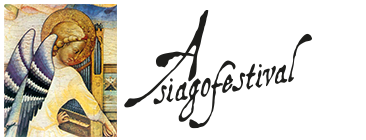After a sold-out concert in London’s famous Wigmore Hall in March 2002, the “Strad” wrote: “…the highlight of the concert season! Underpinned by a brio and audacity, which other quartets rarely display, the Henschel Quartett’s performance was as close to perfection as it was above suspicion. Magical!” The “Frankfurter Allgemeine Zeitung” after the quartet’s most recent concert at the Rheingau Musik Festival writes of “… a sidereal hour of chamber music.”
In 1994 the Henschel brothers found in cellist Mathias Beyer-Karlshøj the ideal partner for this formation. Years of study with the Amadeus Quartet, Prof. F. Beyer, and later with the Alban Berg, La Salle, and Melos quartets brought them up to the highest international standards. In 1995 the quartet won three of the most renowned international competitions: in Evian, Banff and Salzburg, they also won first prize in the Osaka International Competition and in the following year the gold medal. Debuts in the most important centers of classical music followed, so did the concert at London’s Wigmore Hall where they replaced the Juilliard Quartet at the last moment, a concert that was broadcast live by the BBC. These successes elevated the Henschel Quartet to the “1st liga of the world’s leading string quartets.” (Westdeutsche Allgemeine Zeitung) The quartet is a regular guest of the best-known concert seasons. It continuously performs at the most famous festivals such as: Tanglewood/USA, at the “Proms Concerts” in London, at the “Schubertiade” in Feldkirch, in Kuhmo/Finland, the “Rheingau Musikfestival,” the “Schwetzinger Festspiele,” the “Kissinger Sommer,” Gidon Kremer’s “Kammermusikfest” in Lockenhaus. They often return to Japan where they enjoy considerable fame. In 2000 Japan’s NHK television broadcast a one-hour documentary on them; in 2003 they celebrated their ninth appearance there.
In more than 80 concerts a year at the Concertgebouw Amsterdam, the Tivoli in Kopenhagen, in Glasgow (BBC), Stuttgart, Munich, Japan, Australia. They frequently perform together with equally well-known colleagues such as Radovan Vlatkovic, Sharon Kam, Eduard Brunner, Alfredo Perl, Christian Elsner, Anna Gourari, Till Fellner, Nicolas Angelich, the Mandelring Quartet, and Magdalena Kozena. Appreciated for their affinity, their unique sound and the joy they convey, they have been repeatedly reinvited to Denmark, Australia and Japan where they routinely perform entire quartet cycles. Since 1998 they have had their own festival at Seligenstadt Monastery where they always host an ensemble. A new center of chamber music has sprung up here that enjoys international renown. Numerous are the Henschel Quartet’s recordings, among them the recording of Felix Mendelssohn’s quartets, which was awarded the German record critics’ prize (“Preis der deutschen Schallplattenkritik”) and the recording of Ginastera’s quartets awarded by “Grammophone.” For DG (“Deutsche Grammophone”) they recorded in 2004 music by Erwin Schulhoff and Ottorino Respighi’s “Il Tramonto” with singer Magdalena Kozena. Their bright and doughy sound is also due to the fabulous instruments the members of the Henschel Quartet play: they are violins by A. Stradivarius, viola by G. da Salo and a cello by G.Grancino.

